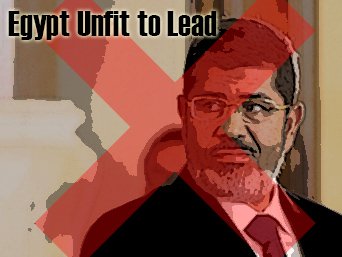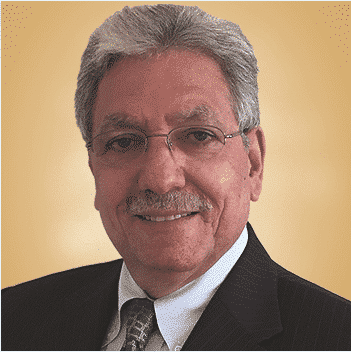by Sami Jamil Jadallah
Any one who thinks Egypt is ready to lead the Arab world has to think twice. The coming hours will show once again that Egypt political leadership whether Muslim Brothers or “secular nationalists” are unfit to lead and manage a country in transition. Good indication is that Mubarak regime is coming back, with a different face.
The late Gamal Abdul Nasser was the closet thing to come to an Arab leader. He was charismatic, mesmerizing in his speeches, uniting Arabs from the Atlantic to the Gulf with his vision of Pan Arabism. A vision and practice that proved a total disaster.
Despite Nasser’s rhetoric of promoting revolutionary changes in the Arab world and the transformation of the country’s rural society, he failed to address the urgent needs of the Egyptian people for freedom and liberty and true comprehensive political reforms that empower the people and not only the “effendi” and military officers. Instead, he transformed Egypt from a corrupt monarchy with ruling elites to a military dictatorship and police state. Nasser rule brought an end to intellectual discussions and debates on liberal democracies and visions of a new state. And that debate never took off again during Sadat or Mubarak regimes.
Nasser failure to transform the political, economic and social systems in Egypt into a working model for other Arab countries to follow paved the way for other Arab dictatorships to take hold across the Arab world. Although Nasser rhetoric certainly contributed to the toppling of longstanding regimes in Libya, Iraq, Yemen, and even Syria, the new leaders that replaced them also transformed these countries into military dictatorships and police states.
Nasser institutionalized the role of the military and empowerment of the one party state (Arab Socialist Union). Nasser, much like his successors, never allowed for the emergence of political and intellectual diversity in Egypt for fear that such leadership may form a danger and a challenge to their leadership. Nasser was reliant on a group of military officers who were ill trained and unqualified to manage the significant problems of failing transportation, housing, health services, food production and distribution, standards of living, and poverty challenges that Egypt was facing and continue to face some 60 years later.
Nasser did initiate the industrialization of Egypt, a process started with Mohammed Ali (1769-1849) the Albanian who ruled and started the dynasty Nasser ended. Mohammed Ali was truly the father of modern day Egypt. Nasser’s political, industrial, even agrarian policies followed the Soviet model, which failed to uplift and improve the quality of life for citizen. The failure of these policies can still be seen today.
For example, Nasser’s rural reforms earned him the good will of millions of Egyptians who were “chattels” on the land. He ended “”Iqta,” the leasing of large tracks of land to the political and economic elite at the expense of Egypt’s rural poor, in place since the Mamluk Dynasty (1250-1517). Despite promises of greater prosperity for the country’s rural poor, his rural and agricultural reforms were ill conceived and badly implemented, resulting in the inability of rural farmers to sustain their needs from the small farms they gained under such land reforms. Rural Egypt became landscape of his regime’s failures in agrarian reforms.
Having failed to transform Egypt to a modern viable democracy marked by free elections, the establishment of diverse political parties, free assembly, free speech and independent judiciary, Nasser gave way for Anwar Sadat to become an absolute ruler. Sadat jailed thousands, and enabled the country’s elite to loot the country under his open policy of “Infitah” or “open door economic policy” that improvished millions of professionals and the middle class that had their hopes lifted from Nasser egalitarian educational reform.
Hosni Mubarak continued the trend of widening the income gap in Egypt and allowed his wife and sons to organize the looting of the country. Millions of Egyptians were impoverished, while the small elite became richer. Political reforms were stalled, and the rigging of elections was the standard and an accepted part of the political landscape. An independent judiciary was nowhere to be seen, corruption was everywhere, and the jailing and arresting of the opposition – mainly from the Muslim Brotherhood – became standard in Mubarak’s Egypt.
After 30 years of oppressive rule and years of mass disenfranchisement by successive Egyptian regimes, a revolution of anger and resentment fueled the people’s courage to face the Mubarak regime’s brutal oppression on the streets.
Contrary to the many revolutions (Russia, France, US, Czechoslovakia among others) that were lead by intellectuals and free thinkers, The Egyptian Uprising was lead by young energetic committed people and mostly secularist Egyptians who wanted a fair share in the country’s political life, free from oppression and corruption. Neither the Muslim Brotherhood nor the present Salvation Front leadership (exception Ayman Nour) was present in the front lines facing Mubarak police and thugs, Muslim Brothers were in jails.
Only when it became clear Mubarak regime had no chance did the likes of the Muslim Brotherhood and the leaders of Salvation Front join the revolution. The thousands who died in the protests did not die for the Brotherhood or for Amr Musa or Hamdeen Sbahi. They died for Egypt.
The result of the police state institutionalized by Nasser is what we see today. Egypt never had credible political leadership with a vision for the future; a future based on social justice, fair, just and independent judicial system, equal opportunities for a quality life, free from the degrading poverty majority of Egyptians endured for centuries.
The Egyptian elites remain, with even the country’s intellectual and artistic elites lacking any connection to the millions of Egyptians living in absolute poverty and daily humiliation standing before breadline’s vegetable and meat stands. They enjoyed their private clubs, shopping sprees in Milan and Paris, being driven around Cairo in limousines, Mercedes Benz and MBWs, with a lack of awareness of the tens of millions who had to endure assault, robbery and crowded buses. They have to wait in the breadlines to get a few loafs of “paper bread.” Egypt has not changed much since Nasser further entrenched the hold that the country’s elite had on resources and political power.
Dr. Morsi and his Brothers failed to understand that his election has nothing to do with an “Islamic State” or a “Sharia.” It has every thing to do with addressing the urgent need for social justice, delivery of food to the table, improvement in public service, collection of garbage, and the delivery of health services. Morsi election’s has nothing to do with “Halal or Haram,” and it certainly had nothing to do with “Heaven and Hell” or with the “Believers and Infidels.” It was about a demand for the basic needs of the people oppressed for decades to be met.
Rather than build partnership and consensus, particularly among the young who borne the costs of the revolution, Dr. Morsi relied on his Brothers to divide the nation into believers and non-believers. And this is where he failed miserably. Rather than rely on the streets and the millions who voted for him, most of who were not Brothers, Dr. Morsi remained hostage to the “Murshid” and the powerful few within the Brothers. Dr. Morsi’s failings cost him the presidency and set back Egypt fledging democracy back decades.
The Muslim Brotherhood failed to come up with a workable vision of the kind of state they want. Leaders of the Salvation Front failed to take a stand on the former regime and exonerated many of the same people who were responsible for the death and injury of thousands of Egyptians under the previous regime. The Salvation Front failure to distance itself, if not demand judicial justice for those who were killed and those who fleeced the country shows that the Salvation Front has no moral let alone political standing to lead the country. The failings of the Brothers in Egypt, will make it so difficult for them to rebuild any credibility to rule anywhere in the Arab world.
The issues facing the Arab world, especially the Arab Spring countries, are not ideological in nature. They are political issues that have to do with rights of citizenship, bread, jobs, health care, decent education, vocational training, equal opportunities, delivery of basic services such as clean water, electricity and treatment of sewage and above all, freedom from arbitrary arrests and kangaroo courts.
It is a shame that the same Egypt that gave the Arab world great intellectual giants such as Taha Hussain, Abbas Mahmoud al-Aggad, Ahmed Lutfi al-Sayyid, Ahmed Amin, Salama Musa, Taufiq al-Hakim and Ali Abdallah Raziq has failed to realize its potential. The Egypt of the 21st century is no different from the Egypt of 20th or the 19th century. It is a shame for Egypt that the Brothers proved to be unfit to rule and the liberal “secularists” too cowardly to speak out and argue their case of an open democracy, with separation of religion from the state.
In the popular revolution that toppled Mubarak’s regime, Egyptian intellectuals and thinkers and artists were almost nowhere to be seen, with the exception of few the likes of Alaa al Aswany, Nawal el Sadawi. No one tried to give such a revolution a vision or trade mark that could transform it from a popular uprising to institutional building. No matter what happens next in Egypt, it is simply unfit to lead the Arab world.

Sami, a Palestinian-American and a US Army Veteran (66-68), recipient of the “soldier of the month award and leadership award from the 6th Army NCO Academy, is an international legal and business consultant with over 40 years of international experience, in construction, hospitality services, conservation, and defense, in the Middle East, Europe, and North Africa. Sami is a holder of BA, MPA in Public and Environmental Affairs, Jurist Doctor from Indiana University. While at IU he was elected class president, student government president and chairman of the Indiana Students Association,
Active in peace movement as a co-author of the pre-amble for the One State for All of its people and voluntary service program SalamNation. A frequent contributor on national and international affairs. He resides in the United States.
ATTENTION READERS
We See The World From All Sides and Want YOU To Be Fully InformedIn fact, intentional disinformation is a disgraceful scourge in media today. So to assuage any possible errant incorrect information posted herein, we strongly encourage you to seek corroboration from other non-VT sources before forming an educated opinion.
About VT - Policies & Disclosures - Comment Policy



